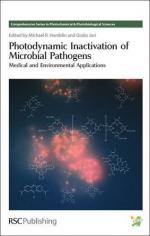|
This section contains 556 words (approx. 2 pages at 300 words per page) |

|
A pathogen is an agent that causes disease. Pathology is the scientific study of human disease. One could argue that anything that causes disease is therefore by definition a "pathogen." Sunlight is the environmental agent that (with excessive exposure) induces the potentially fatal skin cancer known as melanoma. Ordinarily, however, most people do not consider sunlight to be a pathogen. An unbalanced diet may result in nutritional deficiencies which can lead to diseases such as pellagra (caused by a niacin deficiency) and scurvy (caused by inadequate vitamin C in the diet). Nevertheless, the failure to consume a balanced diet is not considered to be a pathogen. Generally, most students of disease refer to biological agents when they use the term pathogen. Such agents, which include viruses, bacteria, fungi, protozoa, and worms, cause a tremendous diversity of diseases.
Viruses, while considered biological agents, are not cellular organisms and accordingly...
|
This section contains 556 words (approx. 2 pages at 300 words per page) |

|


